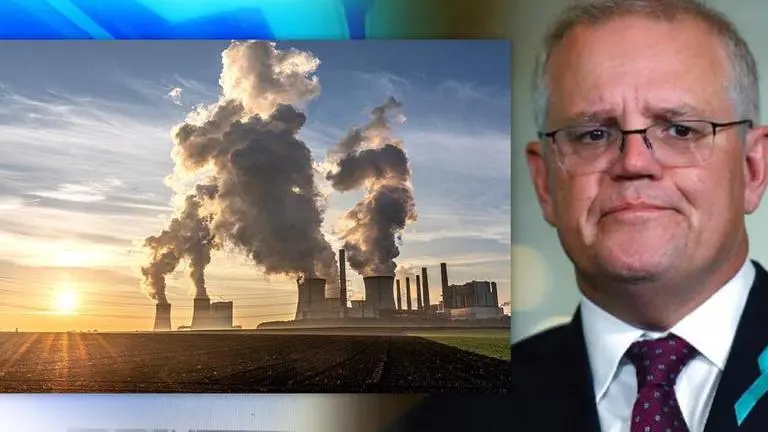Updated 26 October 2021 at 12:50 IST
Australia's PM Morrison gives in-principle support for net zero carbon emissions by 2050
Scott Morrison wants to carry a more ambitious plan to decrease Australia's greenhouse gas emissions when he leaves for a UN summit in Glasgow.
- World News
- 3 min read

On Monday, October 25, Australian Prime Minister Scott Morrison announced the appointment of a fifth National Party minister to his Cabinet as part of a pact to bolster the junior coalition partner's support for a national goal of zero net carbon emissions by 2050. Morrison wants to carry a more ambitious plan to decrease Australia's greenhouse gas emissions when he leaves for a United Nations summit in Glasgow, and the National Party's in-principle agreement for the objective represents a breakthrough for him. Lawmakers from the Nationals refused to discuss the criteria that the party had placed on its support as the conditions were being considered by Morrison's Cabinet, reported The Associated Press (AP).
Barnaby Joyce, the Nationals' leader and Deputy Prime Minister, refused to clarify whether the party had insisted that Resources Minister Keith Pitt be appointed as the party's fifth Cabinet minister. However, Morrison later announced that Pitt will join the Cabinet, despite the latter's assertion that Australia will continue to mine coal for decades. "Minister Pitt is a powerful voice for the resources sector, ensuring that we build on Australia's historic export strengths while also taking advantage of possibilities in the new energy economy and essential minerals," Morrison was quoted as saying by the news agency.
Morrison later told Parliament that he was looking forward to revealing “our obligations in terms of 2050” in Glasgow, in addition to an existing 2030 promise to decrease emissions by 26 per cent to 28 per cent below 2005 levels. The Prime Minister claimed that the Labor Party's vow to cut emissions by 45 per cent by 2030 had cost the party the election in 2019. "The Australian people rejected Labor's policies because the party was unable to explain them." They had no strategy for implementing their policies and couldn't say how much they would cost," he told the Parliament. Meanwhile, he remained tight-lipped on how the government intends to meet its revised 2050 objective or the terms of the deal with the Nationals.
Australia is one of the world's worst greenhouse gas emitters per capita
It should be mentioned here that Morrison has been accused of embracing Labor's 2019 election promise of net zero emissions by 2050. In Australia, which is one of the world's major exporters of coal and liquefied natural gas, reducing emissions is a contentious issue. Because of its strong reliance on coal-fired power, the country is also one of the world's worst greenhouse gas emitters per capita. The Nationals, who are based in rural areas, have traditionally championed farmers' concerns, but they are increasingly being perceived as supporters of the fossil fuel industry.
Advertisement
Despite many countries setting considerably more ambitious targets, Australia has not budged from its 2015 vow at a Paris climate summit for 2030. The COP26 summit in Glasgow will examine progress since nations committed in Paris to keep global warming below 2 degrees Celsius. The Glasgow meeting is largely seen as the last chance to keep global warming to 1.5 degrees Celsius over pre-industrial levels.
(With inputs from AP)
(Image: AP/Pixabay)
Published By : Anurag Roushan
Published On: 26 October 2021 at 12:50 IST
